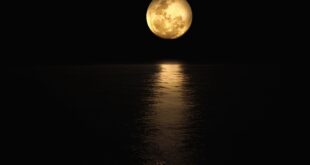Revolutionizing Literature: Top 10 Literary Movements
If you’ve ever read a gripping book that transports you to another time and place, or a poem that moves you to tears, you have undoubtedly experienced the power of literature. But did you know that literature has undergone many revolutions throughout history? Here are the top 10 literary movements that have changed the way we tell stories and explore the human experience.
1. Romanticism
At the end of the 18th century and the beginning of the 19th, writers reacted against the scientific and rational ideas of the Enlightenment by celebrating imagination, emotion, and the beauty of nature. Romantics like William Wordsworth, Samuel Taylor Coleridge, and Lord Byron expressed their internal strife and celebrated their feelings.
2. Realism
Realism originated in France and concerned creating works to achieve a realistic portrait that depicted accurate depictions of life of the middle or lower class. Beginning in the mid-19th century, writers such as Gustave Flaubert and Fyodor Dostoevsky challenged idealizations of society’s culture, values, and social characteristics.
3. Naturalism
Naturalism, on the other hand, represented an evolution of realism by illustration realistic characters subjected to subjective conditions typically missing from popular idealism or romanticism. Zola’s various publications highlighted the extent of the impact of alcoholism, police enforcement, or poverty plague such lives below social structure influences.
4. Modernism
Also known as the avant-garde, modernist writers begun responding to their sense that literature should refocus away from emulated ideals from previous centuries’ traditions to express new era realities in art. Authors demonstrated challenging experiments in language and form: James Joyce, Virginia Woolf, and T.S. Eliot are quintessential examples.
5. Postmodernism
Postmodernism followed Modernism and caused writers to reject the notion of originality and value in literary art by reworking prior pieces of literature mainly with the use of references, what-ifs, and parodies while trying to reshape existing structures such as identity, history, and narrative. Some authors of Postmodern literature are Vladimir Nabokov, Umberto Eco, Milan Kundera, and David Foster Wallace.
6. Gothic Literature
Cultured during medieval times, this gory but engrossing writing style focuses on horror, medieval settings, supernatural superstitions and fright moving against representative rationalism. Considered influential pioneers are writers like Shirley Jackson, Mary Shelley, and Edgar Allan Poe.
7. Beat Generation
Towards the middle of the 20 century became popularised unparalleled standard manipulation and relaxation styles, although representation of life in mainstream America remain in use. The movement took substance during World War II, and its most notable works are those that are ambiguous or temporary. Beat Generation writers include Jack Kerouac, Allen Ginsberg, and William S. Burroughs.
8. Harlem Renaissance
The advent of the Harlem Renaissance emerged during the 1920s when Black writers such as Langston Hughes and Claude Mckay articulated the experiences of the Black community concerning harsh experiences in daily life. The movement mainly focused on providing African Americans relief from external racism and additional scrutiny regarding their authentic culture and realities.
9. Minimalism
Originated initially in the mid-20th century with the development of the minimalist art movement, writers along with playwrights initiated this innovative style. The minimalist scheme entailed philosophical ideas where spare language actually conveys complexities about the real physical world. Writers affiliated with this style are Raymond Carver, by increasing minimalism tendencies, Amy Hempel, Junot Diaz, among others.
10. Transcendentalism
In the mid-18th century, transcendentalists began contesting the dogmatism of their Puritan past while focussing their ‘spiritual liberations’ on the natural world. Emphasizing freedom and as a form of creative spiritual enterprise presenting versatility. Emphasizing evolution of a responsible individual and wholly reliant on exemplary intellectual inquiry i — the notion of free expression rooted transcendentalist works like Thoreau’s Walden and Emerson ‘s Nature.
In conclusion, literature and its movements are testimony refelcting reactions, evolution, integrity with what times project to human perpetual cognitions, enquiries, thoughts in tandem with its impacts. Consequently, we owe to preceding and current movements contributing to valuable and controversial ideas, development, art and culture that present clear and fundamental challenges for human nature.
 Mind Uncharted Explore. Discover. Learn.
Mind Uncharted Explore. Discover. Learn.


